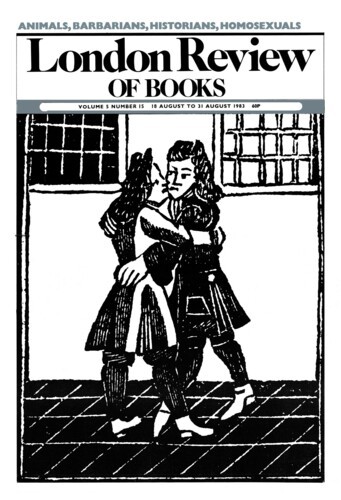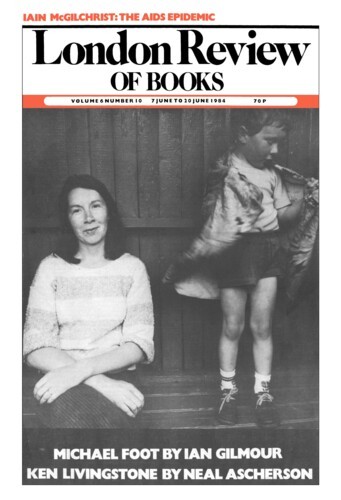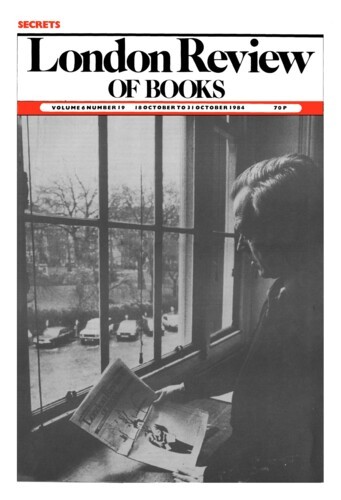Updating Freud
Mary Midgley, 16 September 1982
If Freud were now – much against his principles – to poke his head out of the tomb and look in on us, what would he say? The appalling state of the world would of course not surprise him. But what about his own therapeutic and theoretical empire? He need scarcely be disappointed at its size, or at the number of his entries in indexes. He would still find himself named as prime mover of the movement he fought so hard to keep under his own control. But one thing which would sharply hurt him would be the widespread determination of modern scientists to keep him out of their province. Here he would be justified. His scientific reputation has fallen a victim to a highly confused defensive attempt by scientists to narrow and consolidate their own empire. It is impossible to limit the word ‘science’, as theorists have wildly hoped, to the experimental collecting of detailed facts – still more so, of course, to that of purely negative facts. Science has to include the background conceptual schemes within which those experiments were conceived and selected, and through which their results will be interpreted. It is only because physical scientists are often unconscious of these schemes, and take them for granted like the air they breathe, that this was ever overlooked. In psychology, where getting the conceptual scheme right is half the battle, nobody ought to overlook it. Once it is seen, Freud’s scientific standing becomes clear. He wanted a scheme which would map something real and important enough: namely, the relation between human motives. He wanted it in order to grasp more fully what is happening when they go radically wrong. He rightly thought that the everyday approach to this problem – though incredibly rich in some areas – was patchy, and blurred by a good deal of self-deception. He asked: what is the general structure and connection of human motives, including the unconscious as well as the conscious part of them? There is nothing wrong with this question, any more than with Darwin’s about the Origin of Species. Both ask for very general causal and structural maps. Without such maps, science cannot start. But it must also continually improve the maps as it goes on. How good were Freud’s methods and his answers?




